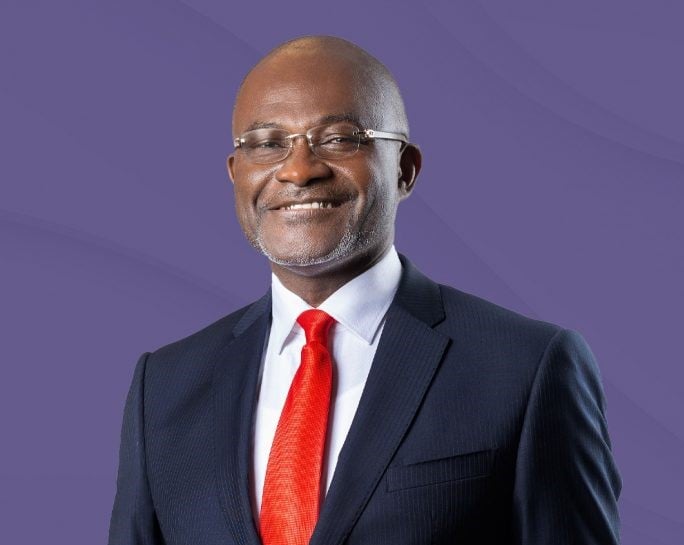Nana Obrempong, the Tema West Constituency Secretary of the New Patriotic Party (NPP), has publicly endorsed Kennedy Agyapong as the party’s optimal choice for the 2028 presidential election. Obrempong’s endorsement underscores a growing sentiment within the NPP that positions Agyapong, the former Member of Parliament for Assin Central, as a frontrunner for the party’s nomination. Central to Obrempong’s argument is Agyapong’s perceived connection with the grassroots, a quality he believes distinguishes him from other potential contenders and resonates deeply with the party’s base. This endorsement comes at a time when internal discussions regarding the NPP’s future leadership are intensifying, although the official race for the nomination has yet to formally commence.
Obrempong’s appeal is directed primarily towards the NPP delegates, whom he calls upon to prioritize the genuine preferences of the grassroots members they represent. He stresses that delegates hold a position of significant responsibility and should not be swayed by misleading information or internal polls circulating on social media. Obrempong argues that these polls are often manipulated to favor particular candidates and do not accurately reflect the true sentiments of the party’s base. He urges delegates to engage directly with their constituents, understand their aspirations, and ultimately choose a candidate who truly embodies the will of the people. This emphasis on grassroots consultation reflects a broader concern within the party about the potential disconnect between the party leadership and the ordinary members who form the backbone of the NPP.
In championing Agyapong’s candidacy, Obrempong highlights several key attributes that he believes make Agyapong the ideal leader for the NPP. He commends Agyapong’s leadership style, which he portrays as decisive and results-oriented. He also emphasizes Agyapong’s commitment to national development, citing his track record of advocating for policies and initiatives that benefit the wider Ghanaian population. Furthermore, Obrempong emphasizes Agyapong’s strong connection with ordinary citizens, arguing that his ability to relate to and understand the concerns of the grassroots makes him a particularly effective and relatable leader. These qualities, according to Obrempong, position Agyapong as the most suitable candidate to carry the torch of the NPP and lead the party to victory in the 2028 elections.
Obrempong’s endorsement stands in stark contrast to the narrative suggested by some internal polls circulating within the party. He dismisses these polls as “fake” and “engineered,” suggesting they are designed to promote specific candidates and manipulate the perception of the delegates. This skepticism towards internal polling highlights a potential tension within the NPP between different factions and their preferred candidates. By urging delegates to disregard these polls and focus on the voices of the grassroots, Obrempong implicitly criticizes the influence of potentially biased information on the selection process. He advocates for a more transparent and democratic process where the will of the party’s base is paramount.
The timing of this endorsement is particularly significant as the NPP begins to navigate the crucial period leading up to the selection of its next presidential candidate. While the official race is yet to begin, endorsements like Obrempong’s indicate the growing momentum behind certain candidates. They also reveal the emerging alliances and divisions within the party, as different factions coalesce around their preferred contenders. Obrempong’s public declaration of support for Agyapong serves as a clear signal of the increasing groundswell of support for the former MP, suggesting he may emerge as a formidable force in the upcoming contest for the NPP’s presidential nomination.
By framing Agyapong as the candidate who can bridge the gap between the party leadership and the grassroots, Obrempong appeals to a powerful sentiment within the NPP. He taps into the desire for a leader who understands and represents the concerns of ordinary party members, and who can effectively translate their aspirations into tangible policies and actions. This emphasis on grassroots connection underscores the importance of maintaining a strong bond between the party and its base, a factor that could prove crucial in determining the outcome of the 2028 elections. As the internal discussions within the NPP intensify, endorsements like Obrempong’s will likely play a significant role in shaping the narrative surrounding the party’s future leadership and influencing the decisions of the delegates. Ultimately, the success of Agyapong’s bid for the nomination will depend on his ability to consolidate this grassroots support and convince the delegates that he truly represents the best hope for the NPP in 2028.


